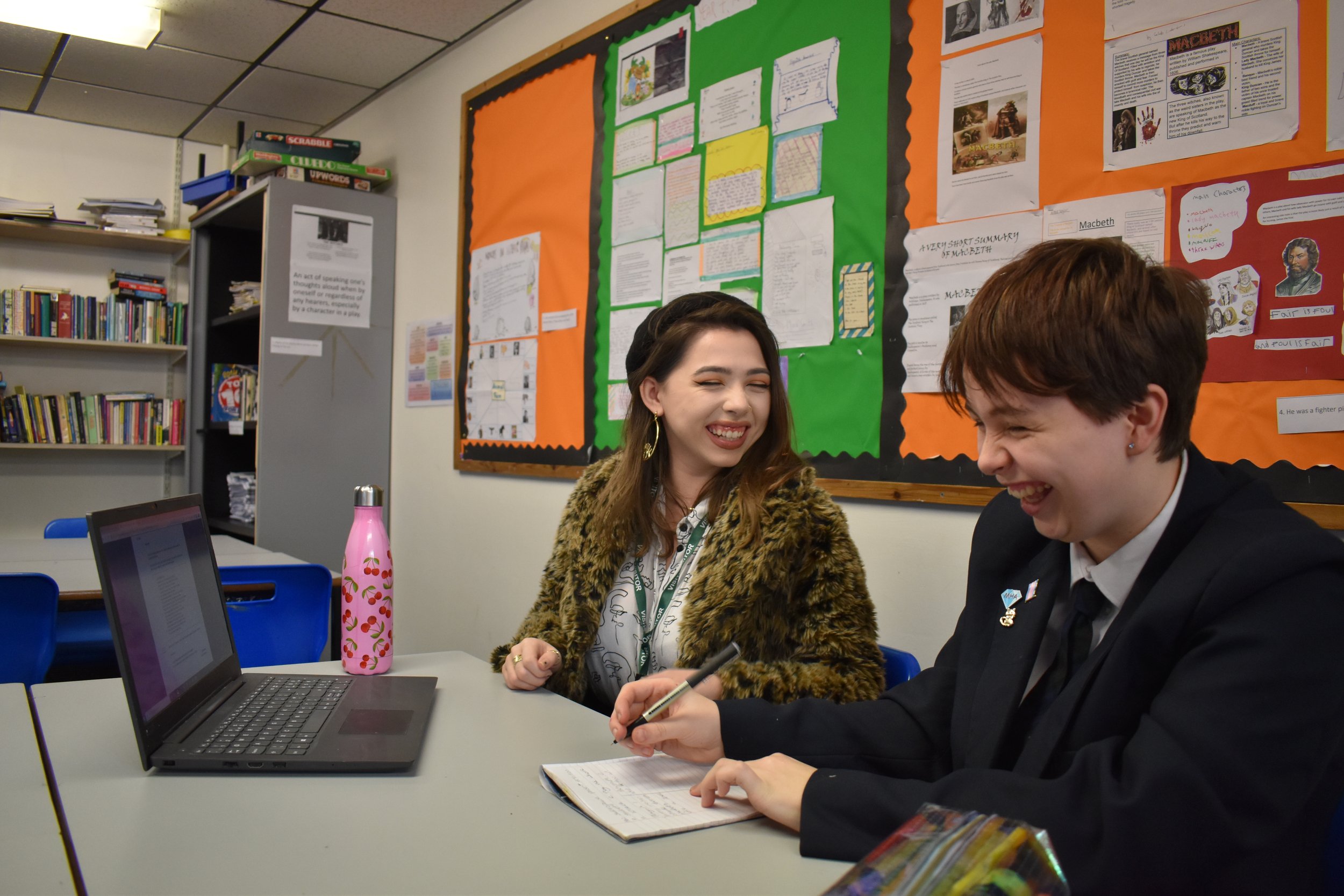We are delighted to publish the second article of our 10th Anniversary Blog Series, written by one of CoachBright’s founding volunteer coaches, Catorina Rubens.
In this article, Catorina talks about her motivation for becoming a coach, what it was like working with pupils who were struggling with topics, and how they responded to her coaching techniques. Sometimes we forget about our programmes' impact on the coaches, focusing solely on the young person at the receiving end of the programme. This article is a good reminder of how our programmes also benefit the young people trained and then placed in the coach role.
We extend our heartfelt gratitude to all the incredible coaching volunteers whose unwavering dedication and passion over the past ten years continue to form the backbone of CoachBright's mission today, ensuring we can bridge educational gaps and foster brighter futures for all.
Supporting Over Telling
CoachBright attracted me immediately because of its student-led focus. I wasn’t interested in going into a school and telling kids what to do – they get enough of that from curriculums and teachers. The idea that CoachBright coaches would facilitate and support rather than instruct resonated with me on a personal level. For me, education should be about allowing pupils to explore topics which interest them, and that’s what CoachBright is all about.
My first CoachBright session was pretty nerve-wracking. I had no idea whether the pupils would see the worth in what we were trying to do, so I was pleasantly surprised by the outcome. They really responded to receiving individual attention and it was rewarding to see the results we got from putting into practice different coaching techniques. I had some fantastic one-to-one sessions with different pupils where I tried to use the active listening approaches we’d learned in training. The pupils opened up more straight away and became far more comfortable discussing what they found difficult about the tasks we were setting. It was like I’d flipped a switch and suddenly they wanted to talk about learning.
A particularly clear-cut memory of CoachBright came in our final session, watching three graduates give presentations on their research topics. Six weeks previously, the idea of public speaking filled these particular students with a deep sense of dread. And yet here they were, standing up and presenting on topics which motivated them, with more confidence and charisma than many experienced adults I know. We gave them feedback on their final presentations and you could see them shining with pride. They recognised how far they’d come. I couldn’t help but think about some of the advantages children who attend certain private schools receive – extra tuition, debating classes, and pronunciation lessons to name but a few – and I smiled at the thought that CoachBright was helping to level the playing field.
Even though CoachBright is only at its inception, it’s clear that the programme is a game changer. I’ve witnessed firsthand how giving young people more control over their learning delivers direct results. These pupils aren’t stupid; they just want a chance to focus their education on stuff that they think is important. The genius of CoachBright is that it enables pupils to achieve this whilst also helping them to develop key skills along the way like public speaking, workshop delivery, communication, self-reflection and research. The participants have been too busy enjoying themselves to realise how they are massively improving in these areas, and that’s thanks to the CoachBright approach.
As a recent graduate myself, CoachBright has been great for me to reach out of my comfort zone and diversify my skillset. The whole programme encourages self-reflection and constructive criticism for both coach and coachees. It’s been an invaluable opportunity to think about how I work with others and communicate. It’s so exciting that this is just the beginning of CoachBright – and I’m very proud to say that I was there at the start.

